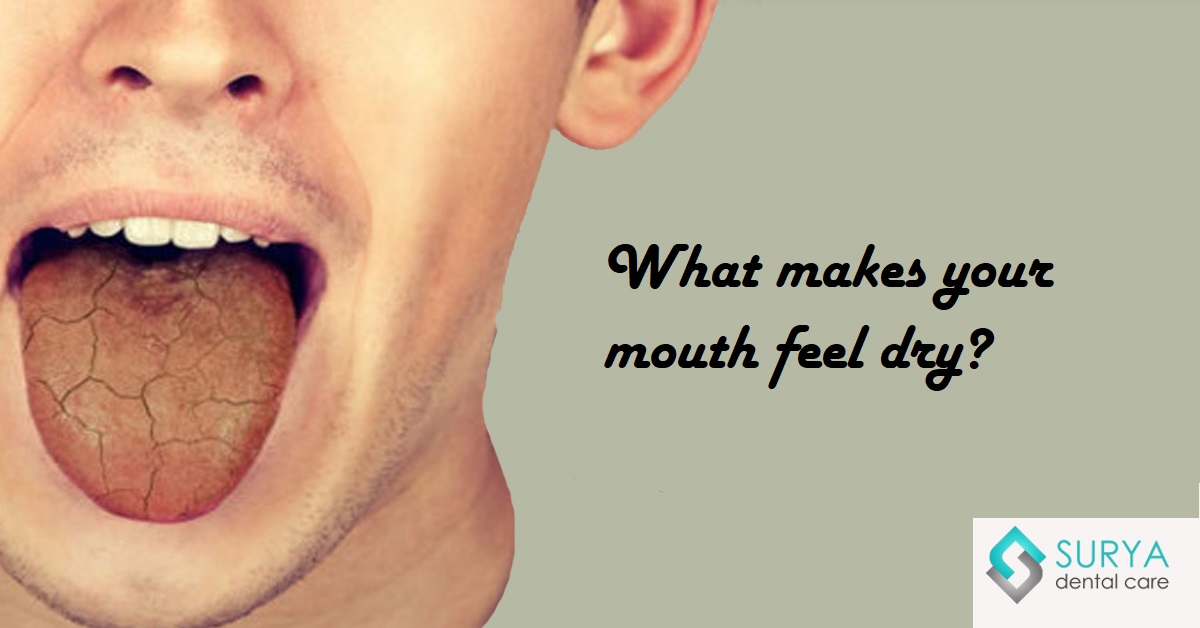
Does your mouth feel dry? Do you know that there are many reasons as to why the mouth gets dry? If you are suffering from a dry mouth syndrome just run through this blog and get to know the reasons. Among the various health conditions that people are susceptible to such as yeast infections, Alzheimer’s disease, stroke, Sjogren’s syndrome, autoimmune diseases, diabetes and HIV/AIDS, there are other contributions to dry mouth.
Dry mouth is also known as xerostomia. This is due to breathing with the mouth open and also snoring. Besides moistening, digesting food and cleansing the mouth, saliva also controls fungi and bacteria in the mouth thereby preventing infection. With the lack of saliva, the mouth gets and feels uncomfortable and dry.
The Causes for Dry Mouth
Along with the various reasons that cause dry mouth, dehydration being one of the reasons also results leading to reducing the saliva production and inducing uncomfortable symptoms. The other causes for dry mouth include anxiety, taking particular medications, stress, smoking and breathing through the mouth. Dry mouth can result from radiation treatment of the neck and head, taking tranquillizers, antihistamines, using marijuana, usage of appetite suppressants and antidepressants.
People suffering from dry mouth may also experience botulism poisoning, autoimmune diseases, cystic fibrosis and aging problems. It is necessary to talk to your doctor before stopping medications that may cause a dry mouth situation. There are certain side effects of medical treatments that can affect the salivary glands and reduce the production of saliva such as radiation and a lifestyle that involves smoking which can also injure health.
The common symptoms that can affect patients with a dry mouth problem include constant thirst, sore throat with hoarseness and nasal passages which are dry. Some of the indications of a dry mouth involve a dry sticky feeling in the mouth and throat, a rough, dry red tongue, cracked lips, bad breath and sores in the mouth. An altered sense of taste, thick saliva and trouble with swallowing or chewing are also indications of a dry mouth condition.
Experience Home Care Tips for Dry Mouth
If you are going through a dry mouth experience, it is time to consult with your doctor but there are certain home care tips that can relieve the situation. With dry mouth being a treatable condition, it is possible to relieve and prevent problem by cutting down on the intake of salt and sugar, sipping water at frequent intervals and sucking on ice cubes.
Patients who are going through a dry mouth problem should avoid tobacco, alcohol and caffeine. As a convenient way to prevent a dry mouth, patients can suck on hard sugarless candy and chew gum which does not have sugar. Over-the-counter saliva substitutes, mints, toothpastes and mouth rinses including using a humidifier or vaporizer in the bedroom while you sleep will also relieve symptoms of a dry mouth.
Treatment for Dry Mouth
If a patient has a dry mouth which is the result of a basic or fundamental health condition, it is necessary to see a doctor and find out if there any are additional treatment options. While your doctor may review existing medications which cause dry mouth, they may change or reduce the dosage, and/or also prescribe artificial saliva or other medications to increase saliva production. Breathing through the nose and not the mouth also helps dry mouth problems.
If patients experience a dry mouth condition, they must visit their dentist regularly to relieve symptoms. It is important to explore good dental care by brushing with fluoride toothpaste and flossing the teeth on a daily basis. This will regulate good oral hygiene and prevent gum disease including tooth decay which is caused by dry mouth.



